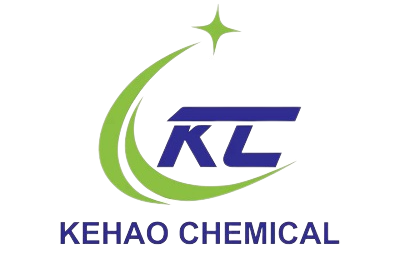Struggling with inconsistent MHEC quality or delivery delays that stall your entire construction project? You’re not alone—many B2B buyers face this same issue.
A reliable MHEC supplier offers consistent product quality, fast logistics, and responsive support. For B2B construction buyers, these factors directly affect your timeline, labor cost, and customer satisfaction.

MHEC supplier selection
Finding the right MHEC supplier isn’t just about price—it’s about trust, track record, and knowing they’ll deliver the exact product grade you need, every time. Let’s break down what really matters when choosing a supplier who can help your business scale.
What Key Qualities Should You Look for in a Methyl Hydroxyethyl Cellulose Supplier?
You know the pain of receiving a shipment that doesn’t match the spec—poor viscosity, wrong moisture content, or worse, poor solubility that wrecks your mortar mix.
Top MHEC suppliers must offer technical transparency, provide certificates like COA, and have a long-standing record of serving the construction industry with tailored grades.
When I source MHEC, I look at several key points. First, how well does the supplier understand construction-grade cellulose ethers? I ask questions about application-specific performance—like if their MHEC grade works well for plaster or tile adhesive. A good supplier should explain how viscosity affects water retention and workability, without overpromising.
Also, I always ask for third-party test reports. Suppliers who share ISO test data or National Building Material Inspection results show they’re serious. If they hesitate to provide a Certificate of Analysis or don’t have consistent batch tracking—it’s a red flag.
Here’s a simple checklist I use:
| Qualities | Why It Matters |
|---|---|
| Application expertise | Helps match the right grade to your use case |
| Technical certificates | Confirms consistency and legal compliance |
| Clear communication | Avoids delays and misinterpretation |
| Sample availability | Lets you test before buying in volume |
| Transparent pricing | Prevents hidden costs |
The best MHEC supplier won’t just sell product—they’ll help you succeed in your market.
Why B2B Buyers Prefer Certified and Vertically Integrated MHEC Manufacturers?
Ever dealt with a middleman who didn’t know much beyond the product label? That’s not who you want when construction deadlines are tight.
Certified and vertically integrated manufacturers control quality from raw cellulose to the final bag. This ensures consistent performance, better lead times, and easier access to compliance documents like ISO and REACH.
Let me tell you from my experience—working with a vertically integrated supplier like KEHAO changes everything. Because we control the full process, from cellulose selection to reactor configuration to packaging, we can fix issues fast. We also track every batch. If a client says, “This grade felt thicker than last time,” we pull the record, retest, and give a clear answer within 24 hours.
Buyers also care about certifications. We provide ISO, REACH, and even third-party SGS inspection reports when requested. If you’re dealing with international projects or large procurement contracts, this is non-negotiable. Without certification, it’s almost impossible to pass third-party audits.
Look at the structure comparison:
| Supplier Type | Advantage | Risk Factor |
|---|---|---|
| Vertically Integrated | End-to-end control, fast adjustment, lower cost | Low |
| Agent/Middleman | Flexible, multilingual, lower MOQ sometimes | High—unclear sourcing |
| OEM-only manufacturers | Price competitive | No direct QC insight |
The peace of mind that comes with full traceability and direct factory support is hard to replace.
How to Evaluate Technical Support and Logistics Capabilities of MHEC Suppliers?
Even the best product is useless if it arrives late or without the right documentation. Poor support can kill deals—and relationships.
B2B buyers should evaluate support response time, knowledge level, customs documentation readiness, and logistics partnerships before placing bulk orders.
I’ve had clients lose construction contracts because their supplier didn’t arrange timely shipment or mislabeled a product code on a customs invoice. That’s why technical and logistics support are just as critical as viscosity spec.
When you evaluate a supplier, ask: Do they offer 24-hour support? Do they know the customs clearance procedures in your country? At KEHAO, we assign a dedicated export manager for every region. They handle documents like MSDS, COA, packing list, invoice, and even arrange third-party inspection if needed.
Also, we build relationships with reliable freight partners to offer sea and rail options, both FOB and CIF. This helps us commit to realistic lead times—usually 10–15 days from confirmation. Plus, we pre-stock high-demand grades like MHEC 40000 MPa.s for quick loading.
Here’s what I recommend you ask any supplier:
| Support Area | Good Sign | Red Flag |
|---|---|---|
| Response Time | Replies within 1 business day | Takes days or ignores requests |
| Tech Support | Has in-house chemists or application team | Only gives basic spec sheets |
| Export Knowledge | Prepares full document pack | Needs chasing for every paper |
| Logistics Flexibility | Offers options, shares tracking updates | No idea about shipping progress |
Strong support saves you time, money, and stress. Don’t settle for anything less.
Conclusion
Choosing an MHEC supplier isn’t just about the product—it’s about the entire experience, from factory to job site. Find someone who understands your business, supports your needs, and delivers on their promises.



